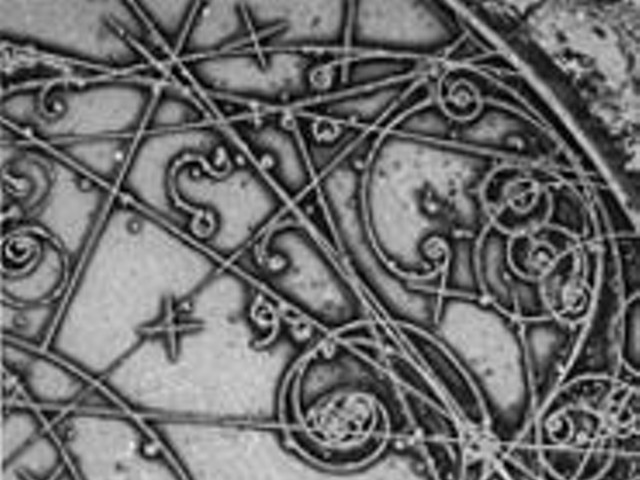The white whale of Moby-Dick, Anderson's latest literary touchstone, swims through the lyrics of many of these songs, just as references to Thomas Pynchon's Gravity's Rainbow colored her earlier work. The whale's whiteness, its ghostliness, challenges the chromatic musical palette of Life on a String. "My Compensation" swirls with spooky turntable effects and digital percussion, then gives way to "Dark Angel," all screwball strings and self-deprecating prattle. The stuttering brass and sax of "The Island Where I Come From," so like the not-Dixieland-not-funk of "Sharkey's Day" from Mister Heartbreak, 17 years ago, comes off like Anderson's ode to her past ingenuity. The water imagery is an excuse for the whale to pop up briefly, but the real subject here and throughout the album seems to be Anderson's own ghosts.
The island in that song, and the snake (now helping himself along on a cane) in "One Beautiful Evening" (it's a frightful evening, in fact) recall "Langue D'Amour" and "Blue Lagoon," also from 17 years ago. "I'm a little teapot, short and stout," Anderson quips here. "Tip me over, and pour me out." The painter Jasper Johns keeps filling his paintings with the icons of his earliest work -- perhaps not to continue referencing their meanings but to empty them of symbolic value through repetition. Anderson likewise is pulling out the pages of her avant-garde diary and tearing them up before they become dusty history.
Anderson's violin, less her instrument than her co-star, cries throughout Life on a String. No longer the subject of Frankenstein experiments (Anderson once equipped a violin with a cassette tape head and played a tape strung on the bow), it's now a fiddle sawing away at a funeral. The strings moan like a mourner as Anderson growls about rain in New York streets and workers digging at midnight in "Washington Street." No, the song isn't about that, but its prescience is eerie. The violin and viola soar in "Statue of Liberty" as Anderson intones "It's a good day to run away/Freedom is a scary thing." As the album title punningly implies, life is a balancing act. The message is equal parts frightening and hopeful.





